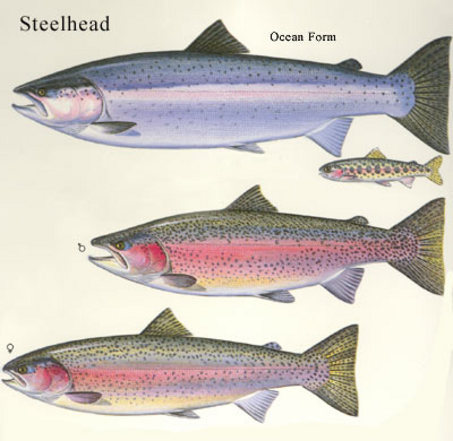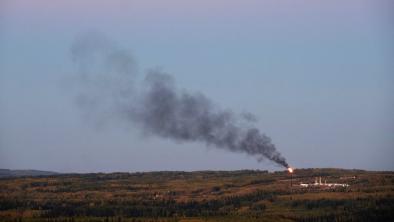Hydro project approval threatens steelhead and salmon habitat
Vancouver Sun

For the first time, the B.C. government has approved a run-of -river power project that diverts water from salmon or steelhead habitat. It means that no wild river in B.C. is safe from diversion and industrialization, regardless of its value to fish and wildlife.
The Kokish River is a small, wild stream on northern Vancouver Island. It cascades from Ida Lake through a steep white-water canyon to the ocean at Beaver Cove near Port McNeill.
This 10-kilometre long stream is home to a rare population of wild summer-run steelhead - seagoing rainbow trout that migrate to the ocean at a young age and return to their river as salmon-sized adults one to three years later.
Summer-run steelhead are usually found in streams that are so steep and fast that cold-blooded fish can't ascend them in the winter because the water is too cold to allow for the necessary high leaps. Only three streams on the east coast of Vancouver Island still have reasonably healthy runs of wild summer-run steelhead, highly prized by anglers and an important contributor to the local tourism economy.
The private power project approved by the province would divert much of the Kokish River into a pipe three metres in diameter and nine kilometres long. The entire length of the diversion is important rearing, spawning and migration habitat for summer-run steelhead, other trout, char and salmon.
The project also involves construction of a diversion weir, water intake, and fish ladder just downstream of Ida Lake and a power house, switchyard, tailrace and half a kilometre of transmission line a short distance upstream of Beaver Cove.
If the project proceeds, we anticipate at least three major, ongoing fisheries habitat impacts:
. The amount and quality of fish habitat will be severely reduced as a result of decreased stream flow.
. Adult fish migrating upstream will be blocked or delayed at the both the upstream water intake and the downstream tailrace, as well as in the reduced-flow diversion reach.
. Juvenile fish migrating downstream will encounter entrainment, blockage or delay when migrating downstream by the water intake, and further delay in the reduced-flow diversion reach.
These impacts would be very difficult and perhaps impossible to successfully mitigate. If you take large amounts of water out of an already small stream and create additional migration barriers, it's not going to be good news for fish, despite anything the Environmental Assessment Office may tell you.
The Capilano and Seymour Rivers in North Vancouver were once world famous for their summer-run steelhead. Water is extracted from these streams to supply domestic water for Metro Vancouver. Despite millions of dollars spent on habitat and hatchery enhancement over several decades, Capilano and Seymour summer-run steelhead are close to extinction. The lesson is that protecting habitat is the only certain way to protect salmon and steelhead.
With the province approving, for the first time, a project that diverts water directly from salmon or steelhead habitat, the stakes are now very high. We used to think that run-of-river power would only be approved in rivers with no or minimal fish values.
If the Kokish is not off-limits to power production, then no river in B.C. is safe.
The provincial government would like us to view this as "green power." It's hard to understand how compromising a very valuable and unique fish habitat can be considered green or sustainable. Twenty years ago, no one would have predicted that today B.C. would have more run-of-river power projects than it has summer steelhead streams.
In our quest for more power, do we really need to put the Kokish into a pipe? Let's remember that once they're gone, wild fish and wild rivers are gone forever.
Poul Bech is a director of the Steelhead Society of B.C. and vice-president of the B.C. Federation of Fly Fishers. Now retired, he was a B.C Fisheries branch technician working with Steelhead from 1979 to 1997.
In 2010, he was the recipient of the Cal Woods Memorial Conservation Award.


